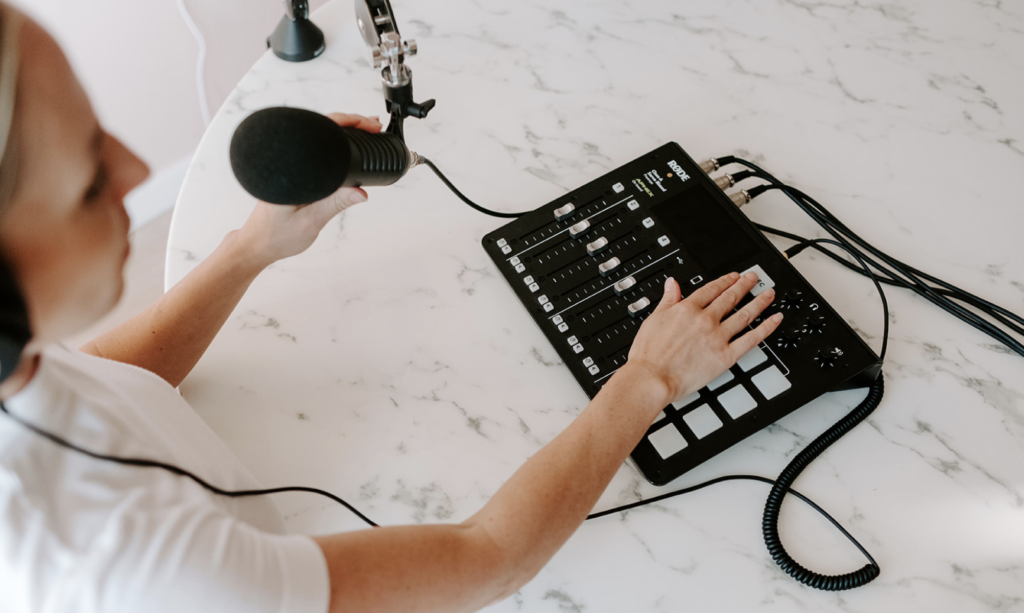Summary
Training your voice is such an important part of the podcasting journey. If you’re starting a podcast, you likely have something special to say. That’s why we want to help you relay your message clearly and strongly!
In this post you’ll learn:
- Why it’s important to care for your voice
- Which foods + drinks to avoid
- How to let go of any tension
- Our #1 tip to be aware of your posture
- The importance of deep breathing
- How to exercise your voice

If you’re launching a podcast, it’s because you have something powerful to say! As you get started, it’s important to train your voice so that what you say will truly resonate.
If there’s one thing we’ve learned in the last five years hosting the Almost 30 Podcast, it’s the importance of having strong and dynamic voices. But it wasn’t like that at first! We trained ourselves and our voices, and we have all the tips and tricks we learned outlined for you here.
These are our five tricks to find and develop your voice as a podcaster:
1. Create a healthy, supportive space for your vocal cords
As a podcast creator, your voice is your most valuable instrument. Try to be as gentle as possible with your voice in the days leading up to a recording. We recommend limiting alcohol and smoking, getting plenty of rest, and fueling your body with nourishing foods.
Avoid dairy and spicy foods because these can cause mucus and acid reflux. Also, hydrate, hydrate, hydrate and make sure the space isn’t too cold or dry — humidifiers are great to have on hand.
2. Let go of tension
Tension in the neck and shoulders can negatively affect your vocal cords. Try shrugging your shoulders, rolling your shoulders back and down, shaking your head ‘yes’ and ‘no,’ and gently leaning your neck to each side. Releasing tension in the jaw and tongue is also helpful.
Try swiping your tongue over your top teeth and then bottom teeth in a clockwise circular motion, and then do the same thing counterclockwise. This last tip may seem counterintuitive, but don’t suck your abs in! Let the belly be loose so nothing locks up as you speak.
Place your hand on your lower abdomen as a reminder. Your hand should move/release as you inhale and should release gradually as you talk.

3. Think about your posture
Are you hunching right now? When you’re podcasting, you want to imagine there’s a bright beam of energy extending from the top of your head to the tip of your spine.
Your posture should be as confident as your message — then your voice will follow suit.
4. Breathe!
It sounds easy, but it’s important to practice deep belly breathing. Take in as much air as you can to support your voice and send fresh oxygen to your brain!
Try this: Take a big breath and fill up your chest only. When exhaling, evenly maintain a note or sound for as long as you can.
Then, take another deep breath, filling your belly as much as you can, and do the same thing again on the exhale.
5. Make sounds… any sounds!
The voice is a muscle, so it’s important to warm it up and exercise it! Start by making sounds that aren’t words. Don’t worry about sounding good.
Some of our favorites are humming, lip trills, laughing in different ways, or pretending we don’t know the words for things yet! Let your inner toddler come out and just make sounds — you’ll find out how dynamic your voice can be!






add a comment
+ show Comments
- Hide Comments